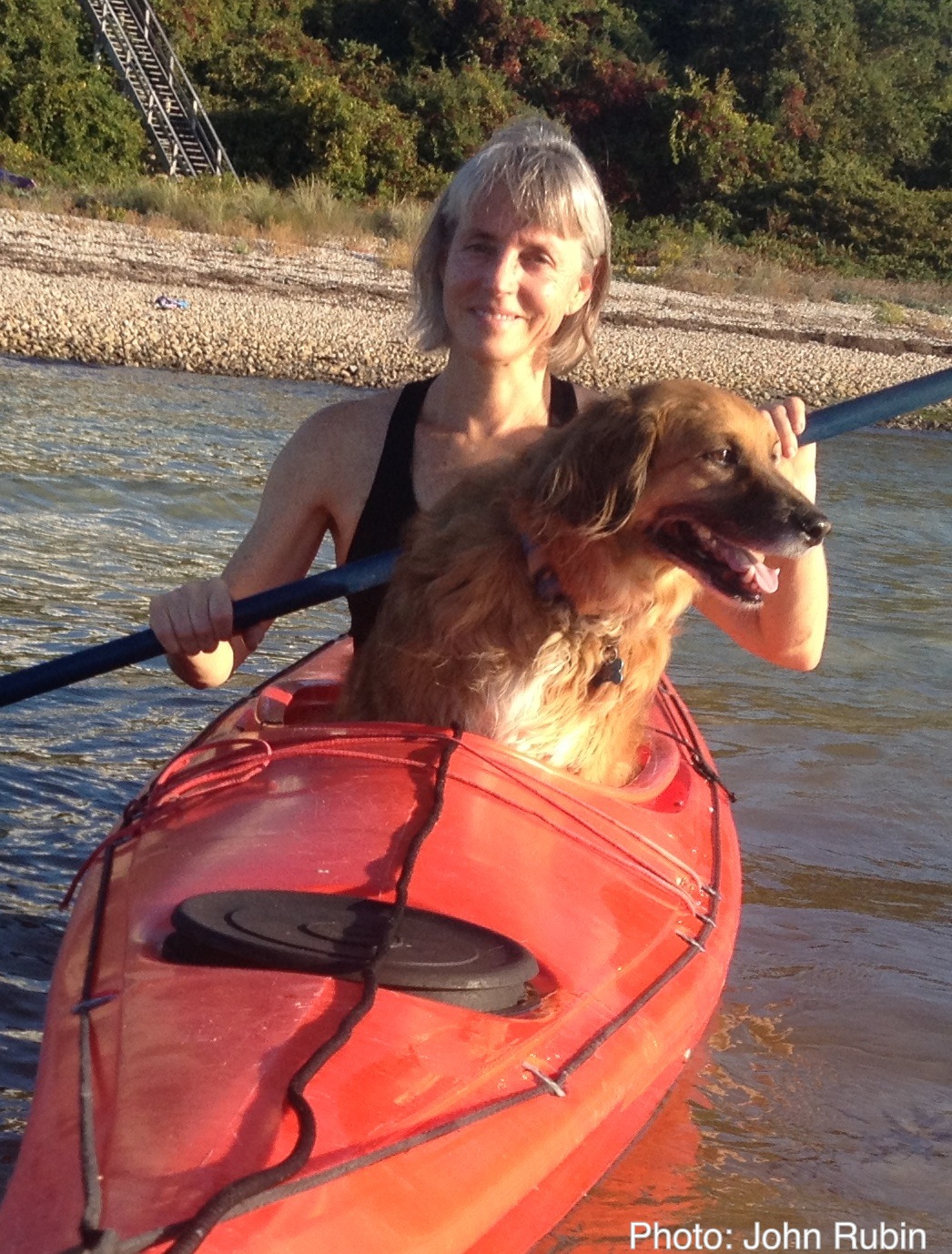
Nancy Kanwisher (and Charlie)
Walther A. Rosenblith Professor of Cognitive Neuroscience
Department of Brain & Cognitive Sciences, MIT
McGovern Institute for Brain Research, MIT
I have the great privilege of working at MIT, where I get to study the human mind and brain, and to work with a wonderful and brilliant group of students and colleagues .
My scientific training is in cognitive psychology, a field that investigates how the mind works by observing its outward behavior. This is a bit like trying to understand how a car works just by making measurements as you drive it around, and by studying the behavior of cars when they break down in different ways, without ever opening the hood. Great progress has been made, and the key questions have been articulated, but you have to be very clever to infer inner workings from the sparse and indirect measure of outward behavior.
When the methods first became available to functionally image the human brain in the early 80s, it blew my mind. Now we could essentially open the hood and watch the human mind in action as it perceives, thinks and remembers. (To a cognitive psychologist, this is almost like cheating.) It was another decade before I gained access to these expensive machines and got to do my own brain imaging experiment. fMRI is an astonishingly powerful tool, which has given us a window into the fundamental organization of the human mind and brain. However it also has real limitations. Its spatial and temporal resolution are lousy, and it cannot provide direct causal tests of the relationship between brain activity and behavior.
In this site, I hope to share with a broad audience some of the the progress we’ve made and the challenges we still face in the effort to understand the human mind and brain.The site is a pilot effort testing whether the format of a browsable collection of short talks is an effective way to do so. To help me to decide whether and how to improve the site, and whether to add more talks (and which ones), I would greatly appreciate your feedback here.
Note: In the past when my work has received press coverage, I get a lot of emails from people seeking my advice about brain disorders. My heart goes out to anyone stuggling with a brain disorder, which has to be one of the hardest challenges a person can face. I hope some day that the work we do in my lab will be of use in understanding and coping with brain disorders. But we are not there yet. So please know that if you have a brain disorder, it is a neurologist you need to talk to, not me. For now, the real payoff of my work is simply the thrill of a glimpse into the nature of our own minds and brains.
This site was constructed with astonishing speed by Jenelle Feather.
Lectures were filmed by Giro Studios, and video edited by Sarah Bellingham.
Last updated 10/23/2020. Accessibility
